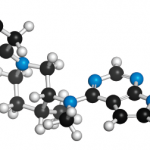
Image Credit: Gustavo Frazao/shutterstock.com
“Each project adds new knowledge that brings us a little closer to the cure,” Joan Bathon, MD, of Columbia University Medical Center, says of the Rheumatology Research Foundation’s 8th Annual Investigators’ Meeting in San Diego. Dr. Bathon was one of more than 30 investigators who presented the latest progress on research funded by the Foundation’s Targeted Research Grants. The grants provide essential support for innovative studies focused on generating new insights into the cause, progression and treatment of rheumatoid arthritis (RA) and related autoinflammatory diseases.
“I always learn a lot about other areas of research and new technologies that I didn’t know before,” Dr. Bathon explains. At the meeting, she shared how she’s using her Foundation grant to study pathways and indications of cardiovascular disease in RA patients. Armed with collaborations and knowledge from the Investigators’ Meeting, she hopes that her research can shed light on the causes of heart failure in RA patients and help identify which patients are most at risk before heart failure occurs.
Another attendee and presenter, Alessandra B. Pernis, MD, Medicine-Weill Cornell Medical College, agrees that the Investigators’ Meeting provides valuable support for her work. “It gave me a lot of great new ideas and, more importantly, helped me establish several potential new collaborations.” Dr. Pernis’ Foundation-funded study seeks to determine whether exposure to cigarette smoke can trigger or exacerbate RA by activating a specific family of molecules. She says that inhibitors against this effect are already used to treat cardiovascular disorders and that the results of her study could allow those same treatments to be applied to RA patients with a history of tobacco exposure.
The studies conducted by Drs. Bathon and Pernis are among the 32 projects presented at the Investigators’ Meeting. Many of the projects aim to better understand the causes and risk factors of RA and related autoinflammatory diseases, which could one day lead to new treatments, more prompt diagnoses and prevention of complications that are common among people living with rheumatic disease. Other studies presented at the 2015 Investigators’ Meeting covered a variety of research topics from bench to bedside, ranging from molecules in the lab to the assessments and treatments rheumatologists use in their practices.
- Christopher Ritchlin, MD, MPH, displayed his work to understand which psoriasis patients are most at risk for psoriatic arthritis. This knowledge could help rheumatologists be able to one day prevent joint inflammation and damage for those patients.
- C. Michael Stein, MB, ChB, MRCP, presented on his study, which seeks to better understand why RA patients have an increased risk of coronary heart disease and if that risk could be associated with a poor functioning HDL, or “good cholesterol.” Measuring coronary heart disease risk based on HDL function and intervening with the appropriate treatments, could change the approach rheumatologists use to prevent coronary heart disease in RA patients.
- Judith Anne Smith, MD, PhD, reviewed her work to identify what role certain genes and gene mutations play in the development of axial spondyloarthritis, which is arthritis of the spine. Greater understanding of the role could help rheumatologists diagnose people with the disease more quickly and identify the most appropriate treatment for patients.
- Cong-Qiu Chu, MD, PhD, provided updates on his efforts using cutting- edge molecular biology technology to test whether targeting specific cells and cell functions could be used as a new therapy for RA.
- Kaleb Michaud, PhD, displayed his electronic mobile health tool, which could help doctors better assess RA activity in patients and make better informed treatment decisions.
- Patricia Katz, PhD, explained a pedometer- based intervention model that could simplify methods to decrease fatigue among people with RA through increased physical activity.
In addition to the presentations, attendees also participated in a special session honoring the Foundation’s 30th Anniversary. Foundation President David Karp, MD, PhD, reviewed the history of the Foundation and applauded the attendees for their contributions to the field of rheumatology. “I can think of no better illustration of the importance of the Foundation’s 30-year history than the presentations being delivered here,” said Dr. Karp. “Your hard work and dedication will no doubt lead us to cures.”


